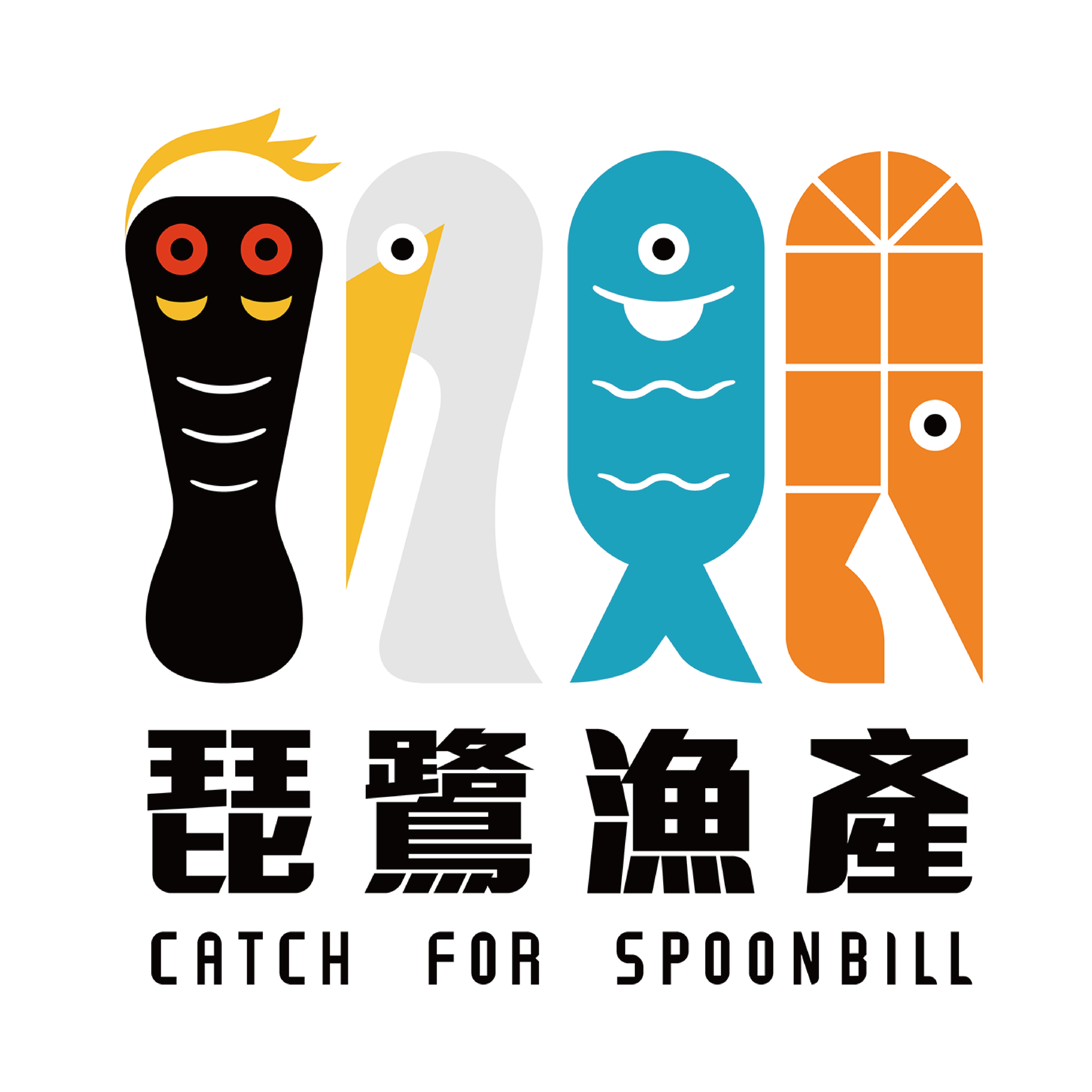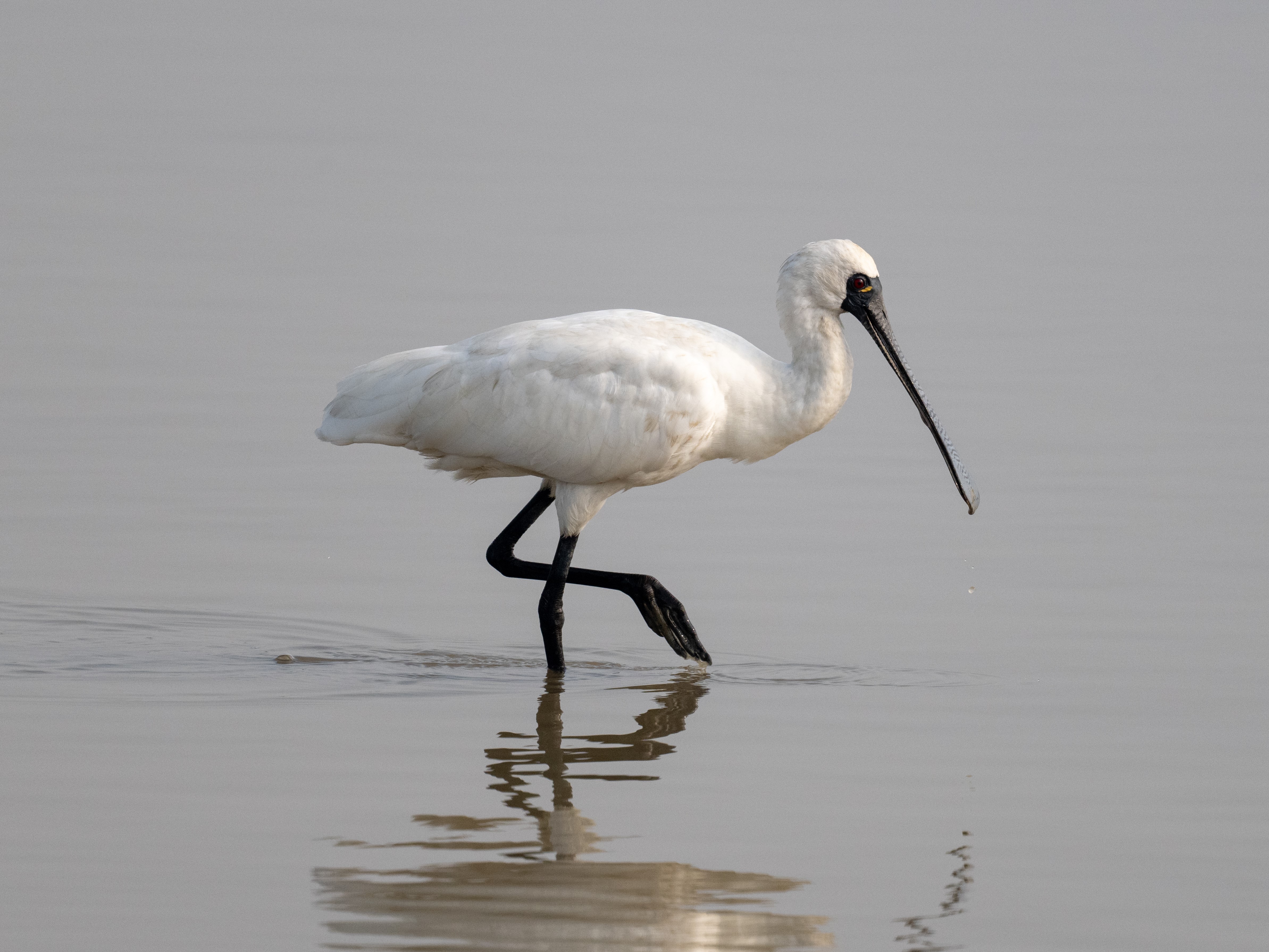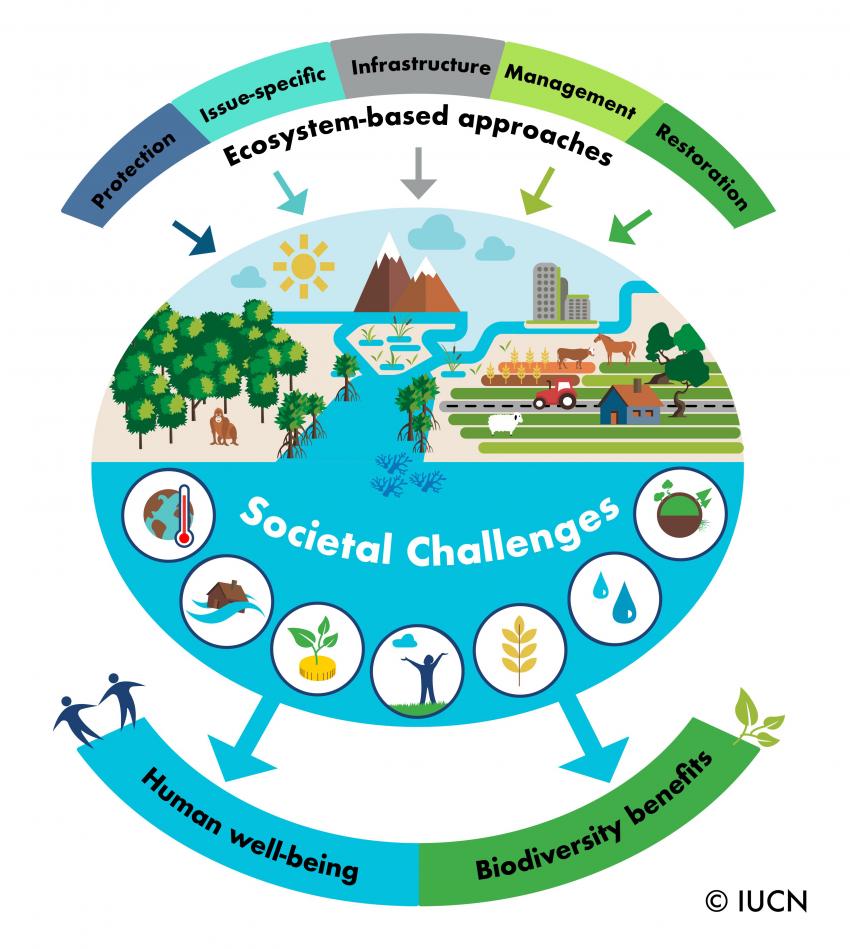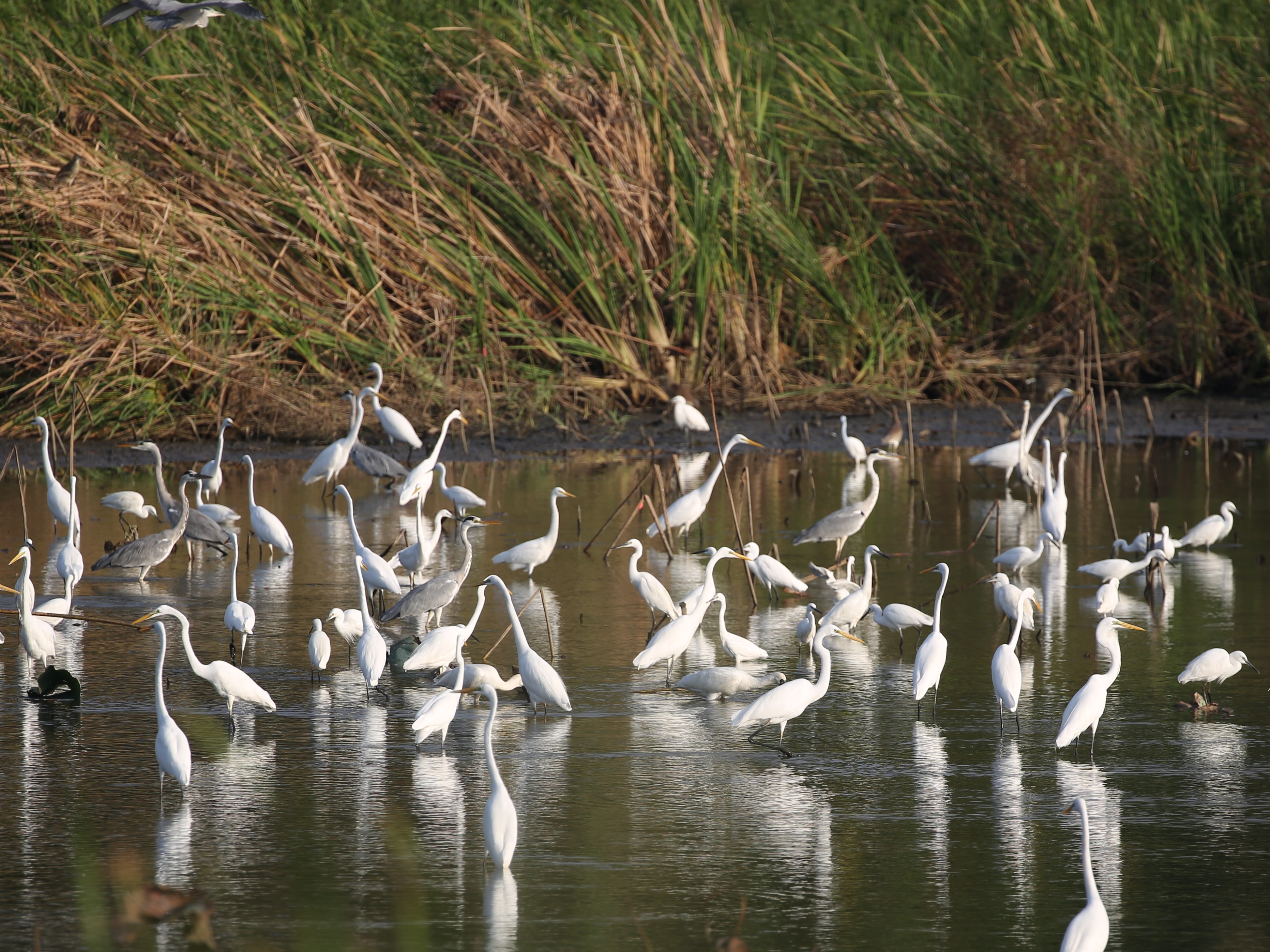Eco-Friendly Brand: Catch for Spoonbill
Connecting Community Power:
Achieving Coexistence of Conservation and Economy

Brand Introduction and Our Goal
Spoonbills and Egrets: Ambassadors for fishpond wetland conservation!
Catch for Spoonbill began in a fishpond of the "Mai Po Inner Deep Bay Ramsar Wetland". Using eco-friendly practice to achieve fish and shrimp polyculture, we aim to establish a fisheries cultivation model with socio-economic-natural value in Hong Kong. By empowering fishpond operators and engaging the community, our brand highlights the value of fishpond wetlands and traditional pond fish culture to consumers and corporates, raising awareness about bird and wetland conservation, thus garnering greater community support.
Our brand commits to supporting fishpond operators and communities who adhere to the natural traditional farming, conserving fishponds, ensuring the food security of Hong Kong's fishery products, and maintaining a stable food supply for both people and birds.
Through high-quality fishery products, our brand hopes to gain consumers’ trust and uplift the economic value of fishery products. Revenues will run to sustainable pond fish culture and bird conservation, creating and promoting bird-friendly environments, aligning with the vision of " People and birds living in harmony as nature continues to thrive".

Achieving Wetland Conservation at the Dining Table!
We are excited to see more corporates and the public embrace and engage in the eco-friendly conservation, connecting the power through “Pond-to-Table” as the action together to protect spoonbills and egrets. Hopefully in the soon future, the public and birds can enjoy the taste of local fishery products while stunning scenery of fishponds are well preserved, the spoonbills can also enjoy their feast in winter in Hong Kong.
Brand Origin
"Is tradition worthless?
Must it be eliminated?"
This is a question that must be considered in this era.

Facing the inevitable changes of the times, traditions are often the first to be abandoned. However, traditional pond fish culture, which carry historic wisdom, is the most beneficial operation for our valuable and diverse migratory water birds.
Currently, the local freshwater culture is facing various threats: the influx of low-priced imported fish, the retirement of older fishpond operators, and a lack of newcomers entering the field. We cannot bear the traditional culture to be cast aside by the times, so we are determined to enter the field and empower a new generation with aligned ideals.
By integrating ecology and fishery products and injecting new vitality, we aim to build a brand with inherent ecological value. Through multi-faceted collaboration with the community, we will promote and strengthen the conservation messages, thereby adding value to the local fishing industry.
Through brand building and storytelling, we aim to make the stories of local fish visible, and increasing their market recognition are one of the key for sustainable development of the industry and for conserving the inseparable ecological value within it. Nature itself provides the best solution!
Understanding the Brand's Eco-friendly Measures

- The eco-fishpond has been certified as an "Accredited Fish Farm" by the Agriculture, Fisheries and Conservation Department
- Fish and shrimps are cultivated using environmentally and bird-friendly practices.
- Refusal of any facilities that hinder or disperse birds from using the pond.
- Low-density culture is employed to reduce the chance of fish and shrimp diseases.
- Maintaining ecological balance and stability of pond water quality in a natural way.
- The use of high-quality feed and gluten such as peanut residue.
- No use of any drugs, hormones, antibiotics, or harmful substances (such as malachite green) in the culturing process.
- After harvesting, maintaining a low water level for a month to allow enough time for birds to prey on the pond's rough fish.
Spoonbills and Egrets
Protect Spoonbills and Egrets starting from Fishpond

Spoonbill
There are two species of Spoonbills in Hong Kong, with the Black-faced Spoonbill being the more familiar one to people. When foraging, the Black-faced Spoonbill uses its bill like a spoon, constantly swinging it from side to side in shallow wetlands to search for food.
In the past, due to wetland development, environmental pollution, and other factors, the global population of Black-faced Spoonbills has greatly declined, leading the species to be classified as "Critically Endangered" by the International Union for Conservation of Nature (IUCN). After decades of conservation efforts, the numbers have started to recover and are now classified as "Endangered." Despite the global population increases, according to the data from the " The International Black-faced Spoonbill Census", there has been no significant increase in the number of Black-faced Spoonbills in Hong Kong over the past decade, showing the importance of wetland conservation in Hong Kong cannot be ignored and requires everyone's protection and attention.
Currently, other than the largest wintering site for Black-faced Spoonbill is in the wetlands of Tainan, Mai Po and Inner Deep Bay wetlands in Hong Kong are also one of the major wintering habitats for Black-faced Spoonbills. They migrate southward annually from the west coast of Korea, and when they rest and replenish in Hong Kong on their journey, fishponds are among their favorite and important habitats, providing them with the necessary energy to continue their journey.
Black-faced Spoonbills show extremely high fidelity to their habitats, and conserving their habitats is the best way to protect them and ensure their population steadily recovers."
Egret, Herons & Bitterns
Hong Kong has around ten species of egrets, herons and bitterns that primarily inhabit fishponds, including the well-recognized Great Egret and Little Egret. Egrets love to prey on small fish, shrimp, and insects which often found in fishponds.
Most of Hong Kong's egrets are winter migratory birds, foraging for food in fishponds around Mai Po and Inner Deep Bay Wetlands. Some egrets are resident birds, staying in Hong Kong during the summer to nest, breed, and raise their young in fishponds and nearby areas. While most egret species are not globally endangered, the breeding numbers in Hong Kong during the summer are declining. Egrets play a vital role in the food chain due to their global distribution and larger populations, helping to maintain ecological balance and biodiversity. Conserving fishpond wetlands and preserving habitat quality are crucial for the conservation of each generation of egret populations.
Brand Value
Catch for Spoonbill adheres to the Social-economic-natural complex Ecosystem approach and enhances value of local fishery based on ecological principles. This approach helps the public understand the close relationship between traditional pond fish culture and its ecology. The income generated supports fishpond operators engaged in traditional aquaculture and contributes to bird conservation, serving as a demonstration of the compatibility between ecological conservation and economy in Hong Kong.
SDGs
The brand's work and values align with the following United Nations Sustainable Development Goals:


NbS
Nature-based Solutions(NbS)refer to actions that involve the protection, sustainable management, restoration of nature, and the transformation of ecosystems to effectively and adaptively address societal challenges while benefiting human well-being and biodiversity (International Union for Conservation of Nature, 2016).
Fishery and Social Issues Facing in Hong Kong:
Weak food security and Low self-sufficiency rate
Fishery decline due to Insufficient market awareness and income
Environmental degradation and biodiversity loss
Conflict between fishpond operators and birds
Disaster risks of climate change
Catch for Spoonbill as the Nature-based Solutions
Society:
Fishpond operators — Empowering young fishpond operators to enter the industry, allocating income to pond management, operations and sustainable fisheries development, which benefit fishpond operators.
General Public — Making ecological conservation a mainstream education by promoting fisheries products in the community.
Popularize Fish Education — Promote "Fish Education" through eco-friendly pond fish culture, develop fish-eating education plan, design educational and fishery-related experiential activities.
Traditional Culture — Preserve and inherit the “Aquaculture of Fresh-water Fish Technique” listed in the "Hong Kong Intangible Cultural Heritage Inventory", bringing together young communities for local innovation.
Food Safety — Contributing to Hong Kong's self-sufficiency in agriculture and fisheries, giving Hong Kong people the right to choose locally produced agricultural and fisheries products.
Economy:
Economic Benefits — Introduce an innovative model to appreciate product through ecological value, increasing income of fishpond operators; By using ecology to bring economic gains, thereby improving fishpond operators’ perception of wild birds and reducing the long-term human-bird conflicts.
Promote a Sustainable Consumption Model — Widely promote public awareness of local fishery brands, supporting communities and conservation through consumer power.
Environment:
Biodiversity — Create "Biodiversity Net Gain " by conserving fishpond wetlands to maintain habitat biodiversity.
Address Climate Crisis — Utilize the " Sponge city" model to temporarily store floodwaters from heavy rains, reducing the risk of flooding in nearby lowlands, providing natural buffering functions to withstand climate change-induced disasters.
Catch for Spoonbill operates in a model that benefits society, economy, and environment, achieving multiple UN Sustainable Development Goals (SDGs) through sustainable methods. As we are in the early stages, we need everyone's support to move forward together with fishponds, operators, and birds.
Support Eco-friendly Fishery Products!
As the strongest support for conserving the vital habitat of Spoonbill and Egret, we call on the public and corporates to participate in the Eco-fish Program to support the catches from 'Catch for Spoonbill'!
Individual Support
Coperate Support
We provide group activities, training seminar and bulk purchase to corporate groups.
Corporate cooperation and inquiries: 23774387 / fishpond@hkbws.org.hk




